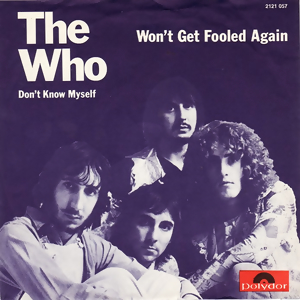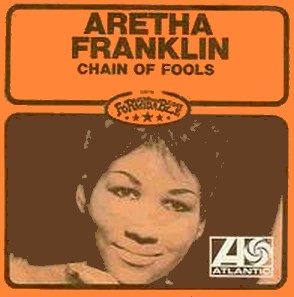The Anatomical Therapeutic Chemical (ATC) Classification System is a drug classification system that classifies the active ingredients of drugs according to the organ or system on which they act and their therapeutic, pharmacological and chemical properties. Its purpose is an aid to monitor drug use and for research to improve quality medication use. It does not imply drug recommendation or efficacy. It is controlled by the World Health Organization Collaborating Centre for Drug Statistics Methodology (WHOCC), and was first published in 1976.

Andries van Wezel, latinised as Andreas Vesalius, was a Flemish anatomist and physician who wrote De Humani Corporis Fabrica Libri Septem, what is considered to be one of the most influential books on human anatomy and a major advance over the long-dominant work of Galen. Vesalius is often referred to as the founder of modern human anatomy. He was born in Brussels, which was then part of the Habsburg Netherlands. He was a professor at the University of Padua (1537–1542) and later became Imperial physician at the court of Emperor Charles V.

Pathology is the study of disease and injury. The word pathology also refers to the study of disease in general, incorporating a wide range of biology research fields and medical practices. However, when used in the context of modern medical treatment, the term is often used in a narrower fashion to refer to processes and tests that fall within the contemporary medical field of "general pathology", an area that includes a number of distinct but inter-related medical specialties that diagnose disease, mostly through analysis of tissue and human cell samples. Idiomatically, "a pathology" may also refer to the predicted or actual progression of particular diseases, and the affix pathy is sometimes used to indicate a state of disease in cases of both physical ailment and psychological conditions. A physician practicing pathology is called a pathologist.

Anatomical pathology (Commonwealth) or anatomic pathology (U.S.) is a medical specialty that is concerned with the diagnosis of disease based on the macroscopic, microscopic, biochemical, immunologic and molecular examination of organs and tissues. Over the 20th century, surgical pathology has evolved tremendously: from historical examination of whole bodies (autopsy) to a more modernized practice, centered on the diagnosis and prognosis of cancer to guide treatment decision-making in oncology. Its modern founder was the Italian scientist Giovan Battista Morgagni from Forlì.

A jester, court jester, fool or joker was a member of the household of a nobleman or a monarch employed to entertain guests during royal court. Jesters were also traveling performers who entertained common folk at fairs and town markets, and the discipline continues into the modern day, where jesters perform at historical-themed events.

Standard anatomical terms of location are used to unambiguously describe the anatomy of animals, including humans. The terms, typically derived from Latin or Greek roots, describe something in its standard anatomical position. This position provides a definition of what is at the front ("anterior"), behind ("posterior") and so on. As part of defining and describing terms, the body is described through the use of anatomical planes and anatomical axes.

Only Fools and Horses.... is a British television sitcom created and written by John Sullivan. Seven series were originally broadcast on BBC One in the United Kingdom from 1981 to 1991, with sixteen sporadic Christmas specials aired until the end of the show in 2003. Set in working-class Peckham in south-east London, it stars David Jason as ambitious market trader Derek "Del Boy" Trotter and Nicholas Lyndhurst as his younger brother Rodney Trotter, alongside a supporting cast. The series follows the Trotters' highs and lows in life, in particular their attempts to get rich. Critically and popularly acclaimed, the series received numerous awards, including recognition from BAFTA, the National Television Awards and the Royal Television Society, as well as winning individual accolades for both Sullivan and Jason. It was voted Britain's Best Sitcom in a 2004 BBC poll.

John Richard Thomas Sullivan OBE was an English television scriptwriter responsible for several British sitcoms, including Only Fools and Horses, Citizen Smith and Just Good Friends.

Foolishness for Christ refers to behavior such as giving up all one's worldly possessions upon joining an ascetic order or religious life, or deliberately flouting society's conventions to serve a religious purpose—particularly of Christianity. Such individuals have historically been known as both "holy fools" and "blessed fools". The term "fool" connotes what is perceived as feeblemindedness, and "blessed" or "holy" refers to innocence in the eyes of God.

"Won't Get Fooled Again" is a song by the English rock band the Who, written by Pete Townshend. It was released as a single in June 1971, reaching the top 10 in the UK, while the full eight-and-a-half-minute version appears as the final track on the band's 1971 album Who's Next, released that August. In the US, the single entered Billboard on 17 July, reaching No. 15.
The Motley Fool is a private financial and investing advice company based in Alexandria, Virginia. It was founded in July 1993 by co-chairmen and brothers David Gardner and Tom Gardner, and Todd Etter and Erik Rydholm. The company employs over 300 people worldwide.
Terminologia Anatomica is the international standard for human anatomical terminology. It is developed by the Federative International Programme on Anatomical Terminology, a program of the International Federation of Associations of Anatomists (IFAA).

Fool's Gold Loaf is a sandwich made by the Colorado Mine Company, a restaurant in Denver, Colorado. It consists of a single warmed, hollowed-out loaf of bread filled with the contents of one jar of creamy peanut butter, one jar of grape jelly, and 1 pound (450 g) of bacon.

April Fools' Day or All Fools' Day is an annual custom on 1 April consisting of practical jokes and hoaxes. Jokesters often expose their actions by shouting "April Fools!" at the recipient. Mass media can be involved with these pranks, which may be revealed as such the following day. The custom of setting aside a day for playing harmless pranks upon one's neighbour has been relatively common in the world historically.

"Chain of Fools" is a song written by Don Covay. Aretha Franklin first released the song as a single in 1967 and subsequently it appeared on many of her albums. It hit number one on the Billboard Hot Rhythm & Blues chart and number two on Billboard's Hot 100 chart. In the lyrics, the singer has been with her boyfriend for five years but realizes she's one of his "chain of fools," women with whom he's been cheating. Others tell her to leave him, but she says his love is too strong and she's too weak. Yet someday, she predicts the chain will break.

The Narrenturm in Vienna is continental Europe's oldest building for the accommodation of psychiatric patients. Built in 1784, it is next to the site of the old Vienna General Hospital, and is now home to the Federal Pathologic-Anatomical Museum Vienna.
Fool's Gold is an American musical collective that combines Western pop with African and Middle Eastern music. The group started as a side project of musicians Luke Top and Lewis Pesacov, who set out to explore their shared love of various forms of African music, Krautrock, and 1980s dance influenced pop music.
Helen Ivory is an English poet, artist, tutor, and editor.
ZygoteBody, formerly Google Body, is a web application by Zygote Media Group that renders manipulable 3D anatomical models of the human body. Several layers, from muscle tissues down to blood vessels, can be removed or made transparent to allow better study of individual body parts. Most of the body parts are labelled and are searchable.

Anatomical terminology is a form of scientific terminology used by anatomists, zoologists, and health professionals such as doctors, physicians, and pharmacists.















